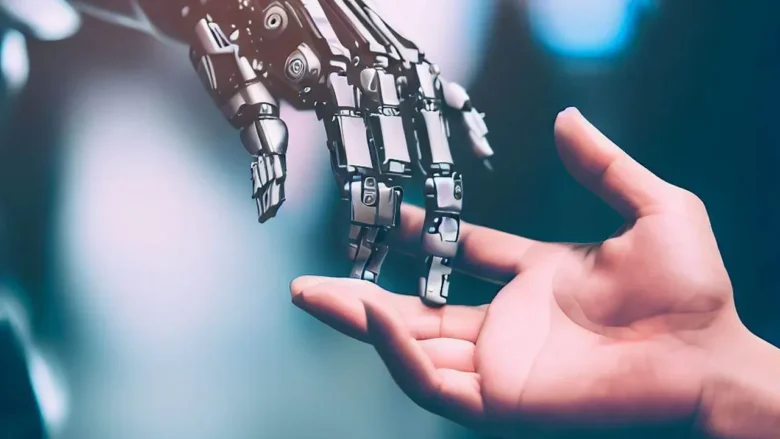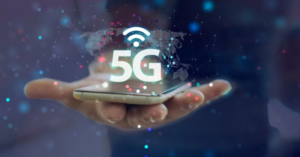Artificial intelligence (AI) has transcended the boundaries of science fiction and advanced research labs. IIt is influencing how we work, shop, communicate, and relax. AIt is transforming the human experience in extraordinary ways, from virtual assistants managing daily schedules to personalized streaming recommendations. AAs technology advances, AI will revolutionize convenience, efficiency, and decision-making in our daily lives in ways we can barely imagine.
Smart Home and AI
SSmart home technology is one of the most significant ways that AI is transforming our daily lives. VVoice-activated assistants, smart thermostats, and AI-powered security systems are becoming more common in households. TThe systems can remember user preferences and automatically perform actions like adjusting the room temperature, turning lights on and off, and locking doors. AI will increasingly anticipate people’s needs before they even express them. Smart refrigerators can order groceries when supplies are low, while AI-powered home management systems can optimize energy consumption and thus lower energy bills. HHomes integrated with AI will become more responsive, safer, and more efficient.
AI in Personal Healthcare
AI is transforming healthcare, particularly personal health monitoring. AI-powered wearables can monitor heart rate, sleep, and activity levels, providing users and doctors with early warnings of potential health risks. AI is expected to enhance preventive healthcare by evaluating lifestyle behaviors and genetic data to create personalized health plans. Instant medical recommendations, scheduling appointments, and medication adherence may soon become standard features of virtual health assistants. The predictive capabilities of AI will make healthcare and care systems more efficient and proactive.
Transportation and AI
Another sector being transformed by AI is transportation. AI-powered autonomous vehicles will transform mobility. TThese vehicles can assess road conditions, traffic patterns, and hazards more quickly than humans, which makes transportation safer and more efficient. AI can connect drivers and passengers, optimize routes, and reduce wait times for ride-sharing services. TThe future of AI-powered public transportation has the potential to ensure both punctuality and energy efficiency. AAI-driven logistics and delivery solutions will accelerate and sustain supply chains, thereby impacting the global flow of products. AAI makes travel safer, smoother, and more connected.
AI in Communication and Social Interaction
AI ‘m penetrating human communication. AAI is transforming digital connections by enabling chatbots to provide instant answers to customer questions and allowing translation systems to bridge language barriers. AI can help social media networks adapt information flows, detect risky behavior, and foster appropriate relationships. AI-driven communication assistants that can sense emotions and personalize responses could make digital conversations more natural and empathetic. VVirtual reality and AI could enable users to participate in realistic virtual meetings and social gatherings from home in the future, thereby blurring the lines between digital and physical interactions.
AI in Education and Learning
AI-driven personalized learning is transforming education. OOnline platforms use AI to monitor students’ learning performance and tailor information according to their individual learning speeds and preferences. AI-powered virtual tutors enable students worldwide to complete complex courses at their own pace. AI can enhance education by providing real-time translation, adaptive assessments, and personalized learning paths for all students. TTeachers can use AI to identify students’ learning gaps and provide immediate feedback. AI can make education more engaging, accessible, and effective.
AI and the Future Workplace
AArtificial intelligence (AI) is transforming various professional sectors by automating repetitive tasks and enhancing decision-making and efficiency. CCompanies are increasingly using AI to analyze data, predict trends, and optimize their processes. AAs AI gradually replaces routine tasks, individuals can focus on creative, strategic, and emotional responsibilities. AI can ultimately guide people in job hunting and skill development. WWhile some people worry that AI will replace human professions, it is likely that AI will create new roles requiring management and interaction with intelligent systems. TThe future workplace will be a hybrid environment in which humans and AI collaborate to enhance efficiency and foster innovation.
Entertainment and Creative AI
EEntertainment is one of the most fascinating areas of AI development. FFrom AI-generated music and movies to personalized streaming recommendations, the convergence of creativity and technology is occurring in fascinating ways. AArtists and designers are utilizing AI to improve their creations, spark innovative ideas, and connect with a broader audience. IInteractive entertainment, including games and virtual experiences that adapt to users’ emotions and behaviors, is likely to incorporate even more AI in the future. CCreatively evolving experiences will make entertainment increasingly captivating and immersive.
The Future of AI in Everyday Life
AIt offers countless possibilities in everyday life that go beyond what we see today. AAs artificial intelligence (AI) continues to develop, it is expected to simplify life and assist people in solving complex problems in new ways. From healthcare to education, transportation to communications, AI will impact every aspect of human life. IIn the coming decade, AI systems are expected to become more astute, emotionally complex, and better integrated into society. AWhen applied responsibly, these developments will enable collaboration between humans and robots, leading to a smarter and more sustainable world.
Conclusion
AI is quickly becoming an everyday necessity. It enhances intelligence in the home, road safety, personalized healthcare, and workplace efficiency. The future of AI looks bright but requires careful regulation, ethical considerations, and continuous development. How AI improves human existence depends on a balance between innovation and responsibility. AI represents the future and will transform the way we live, learn, and communicate in the digital age.
FAQs
1″How is AI used in our daily lives?”
VVirtual AI assistants, recommendation systems, smart home devices, healthcare trackers, and customer service chatbots help simplify and personalize our daily tasks.
2. Will AI replace all jobs?
While AI can replace some processes, it will likely create new jobs in AI management, development, and enhancement, rather than replace humans.
3. Is AI safe for personal devices?
Personal devices with AI are generally safe, but users must be aware of data protection and security procedures to safeguard their data.
4″How will AI change education?”
AI will adapt education based on users’ strengths, limitations, and learning speed.
5″What are the daily challenges of AI?”
AI face challenges related to algorithmic bias, ethical issues, data protection, and the need for limits on responsible and transparent use.




